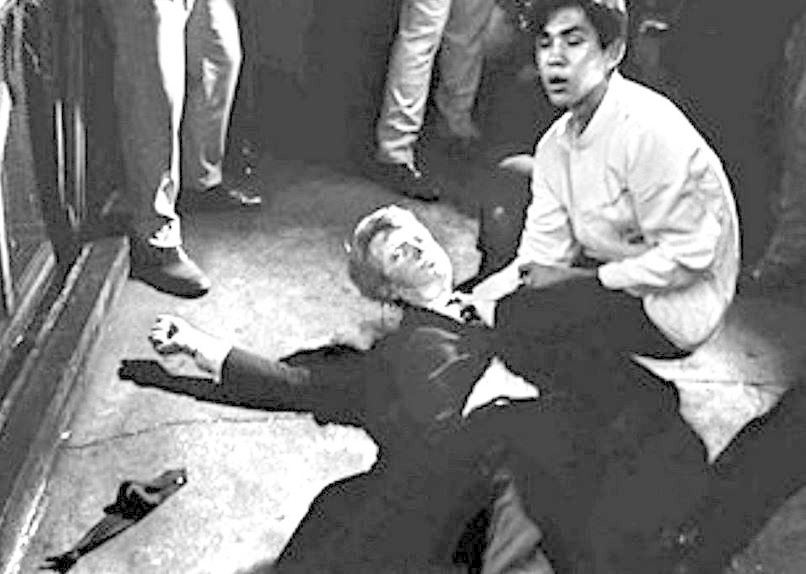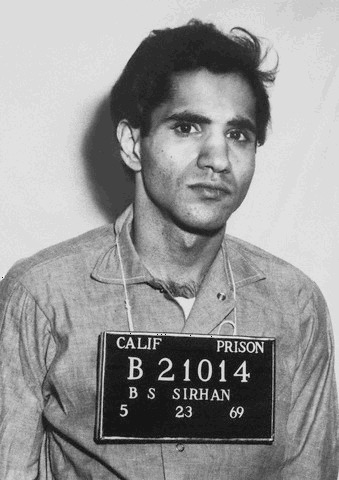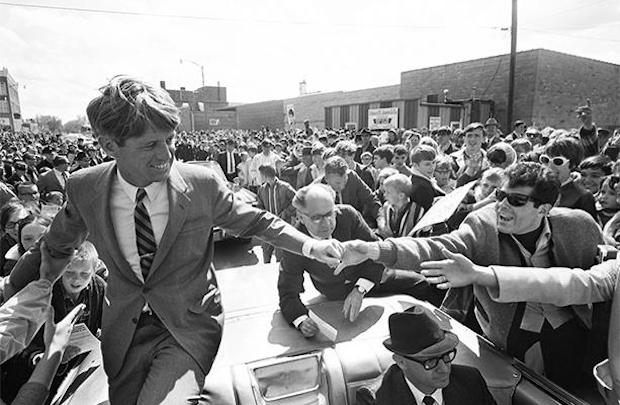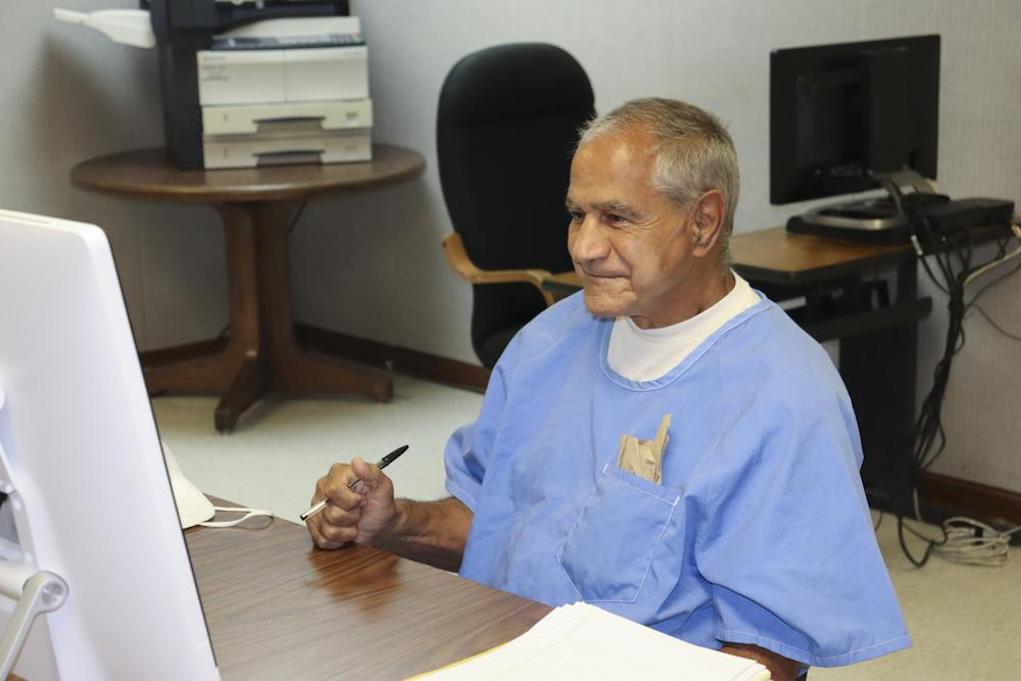Just a few weeks ago, a Probation Commission in California recommended granting parole to Sirhan Sirhan, the Palestinian man who’s now 76 years old and who, according to his trial sentence, killed Senator Robert F. Kennedy Jr. on June 5th 1968 at the Ambassador Hotel in LA. RFK, brother of the US President killed in Dallas 5 years prior, was already Attorney General for the Kennedy administration. That day, in the Los Angeles Hotel, he was celebrating his victory in the California Democratic Primary, which launched him towards a probable Presidential nomination after Lyndon Johnson had decided not to seek re-election. Instead, after the rally, Bob Kennedy was pointed towards the hallway to the kitchens, which should have led to the room where his press conference was going to take place. A frantic young man suddenly appeared just a few feet away from the Senator and he was able to fire several shots at RFK before being taken down.

For over half a century, American newspapers have only written about Sirhan Sirhan occasionally, making headlines only when the son of Palestinian refuges tried to leave prison (he had been sentenced to death, but the Supreme Court abolished the death penalty for a period of time and his sentence was commuted to life in prison with the possibility of parole). His request was denied every time (15 in total) because despite his good behavior while confined, Sirhan continued to maintain that he did not remember committing the crime, as if he were trying to prove he hadn’t killed RFK. In other words, he continued to ignore the gravity of his actions.

This year, for the first time, the new commission deemed parole possible. A hundred and twenty days will have to go by before a new commission endorses or rejects the first favorable decision, and the last word will be up to the Governor of California, who could overturn the verdict.
In American newspapers, interest in the fate of Sirhan has risen in the last few weeks, mostly because of Senator Kennedy’s children, who lost their father 53 years ago, and who appear divided on whether the only man sentenced for their father’s murder should be granted conditional release. Six out of the eight children of RFK have, in fact, released statements in which they said about Sirham: “He took our father away from our family and from America… We can’t believe this man could be recommended for release.” Joseph P. Kennedy II, Courtney Kennedy, Kerry Kennedy, Christopher G. Kennedy, Maxwell T. Kennedy and Rory Kennedy signed the statement. Even the New York Times recently published an opinion piece written by Rory Kennedy, youngest daughter of RFK, in which she listed the reasons why Sirhan should not walk free. The other two sons of RFK, Douglas and Robert F. Kennedy Jr., sided with the release of Sirhan, after recounting the emotions they felt during their visit with him.

What seems, so far, not to have been taken seriously in the current debate is how Sirhan has, in reality, not taken the blame for the Senator’s death. Even in his last meeting with the Commission, he said: “Sen. Kennedy was the hope of the world … and I harmed all of them and it pains me to experience that, the knowledge for such a horrible deed, if I did in fact do that.” Sirhan gave this statement in front of a camera, in the San Diego prison where he is still sitting behind bars today. Is that clear: “If I did in fact do that…” Yes, Sirhan himself continues to spread suspicion on the possibility that he might not be RFK’s murderer.
This is the point on which a debate should be developed by the media – one that might have started already among RFK’s children – on a question to which Sirhan’s sentence, just like Oswald’s case for JFK, never gave a convincing answer: what was the motive for the crime? Why should both JFK and RFK, with all of the powerful enemies they had, have been killed by two young men with pretty shaky motives? With all of the enemies who were present in RFK’s life, could the Israeli-Palestian issue, which barely touched him, have been the one to take his life away?
The possibility of Sirhan Sirhan being released should cause more controversy regarding who had the absolute necessity and urgency to stop Robert Kennedy, who was already launched towards the presidency during that summer of 1968. It was probably the same people who, only two months before, had wanted Martin Luther King gone. Probably the same ones who killed JFK in Dallas in 1963. Or are we going to continue to believe that three random madmen shot and killed three of the most important American leaders of the 1960s in the span of 5 years?
America continues to push the story that first, the President, JFK, was killed by a crazy 20-year-old who would have had to organize the most clamorous murder of the 20th century all by himself, before being assassinated by someone named Jack Ruby, who had been on the mob’s payroll for years. While in the hands of the Dallas police, he continued to deny any accusation, while saying “I am just a patsy”. Furthermore, that MLK was also killed by a regular jailbird, James Earl Ray, who for some reason decided to shoot the Civil Rights Movement’s leader after following him around for a while. What would have happened if, instead of covering everything up, the FBI chief Hoover had followed the note which revealed that three months before shooting Martin Luther King, James Earl Ray had stayed at a New Orleans Motel to meet with some members of the local mob, all related to the great boss Carlos Marcello?

So, should we still believe a story about another 20 year old man who was able to kill, by himself, the Senator and brother of the murdered President, shooting wildly with a gun that, strangely enough, could have contained only 8 of the 12 bullets that were shot in that cursed hallway of the LA Ambassador Hotel? Yes, there were more people injured, holes in the walls made by bullets and gunfire sounds in that night’s recording than the amount Sirhan could have shot with his 22 caliber. The most important detail: the deadly shot that would kill RFK, after hours of agony, came in from behind his head, just below his ear, while Sirhan, like tens of witnesses saw, shot from a completely different angle and distance. So who shot that deadly shot against Robert Kennedy? Why did they never open a real investigation about the bodyguard named Thane Cesar, who had been hired by the hotel to escort RFK and who, according to many witnesses, was already holding a gun while standing next to the Senator? According to the same witnesses, after RFK was hit, he turned towards the bodyguard and grabbed him by the throat before falling to the ground.

Instead, American newspapers report debates on the animosity some of Kennedy’s children still feel towards Sirhan’s release, never discussing, for example, that the son of palestinian regugees worked at a racetrack when he was a young man, owned by people close to the LA mob boss, Mickey Cohen. Cohen was a good friend and business partner of the New Orleans’ boss Carlos Marcello.
At the very least, some documentaries digging for the truth came out for the 50th anniversary of RFK’s death (find the last one, by Al Jazeera, above). Sirhan Sirhan’s release from prison should trigger a lot more in the American public opinion than what came out so far. It should shed light on those, still far too dark, years of American history.
Translation by Emma Pistarino












